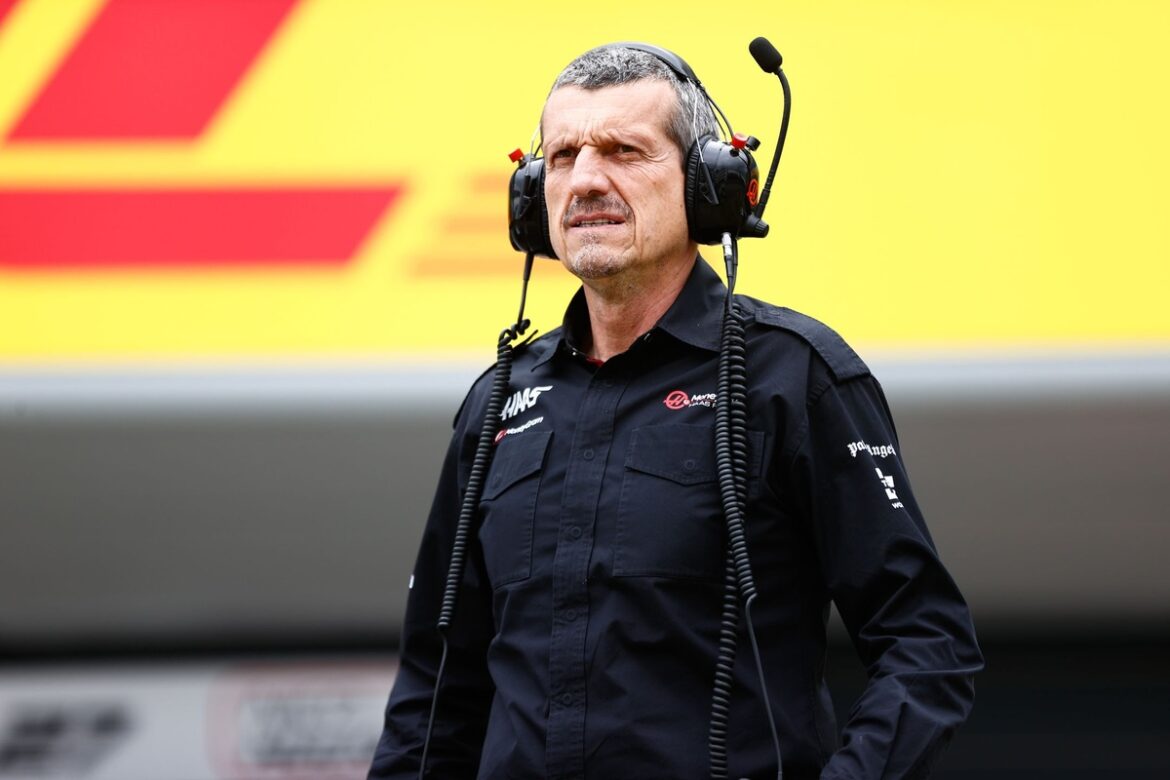Guenther Steiner Critiques FIA’s Management During Mexico Grand Prix
In the world of Formula 1, the rules and regulations set by the FIA (Fédération Internationale de l’Automobile) play a crucial role in maintaining fair competition and safety on the track. However, recent events at the Mexico Grand Prix have raised questions about the effectiveness of these regulations, particularly in how they were enforced during a tumultuous race. Guenther Steiner, the former team principal of Haas F1, has expressed his concerns regarding the FIA’s handling of the situation, highlighting the need for a clearer set of guidelines and more consistent enforcement of penalties.
Chaos at the Start of the Race
The Mexico Grand Prix began with a chaotic start, as several drivers left the track, potentially gaining an unfair advantage. This situation quickly drew the attention of the racing community, with many speculating about the fairness of the race outcome. Steiner pointed out that the mishaps observed during the start raised significant concerns regarding the FIA’s decision-making process. He emphasized that multiple drivers had differing experiences regarding penalties, and this inconsistency left many baffled.
Steiner articulated his frustration during an episode of The Red Flags Podcast, where he remarked, “What is happening? We keep having these discussions, and nothing seems to change.” His words reflect a growing sentiment among drivers and fans alike, who are increasingly questioning the FIA’s authority and decision-making capabilities.
The Virtual Safety Car Dilemma
One of the key moments that sparked controversy during the race was the introduction of a virtual safety car (VSC) in the closing laps. This decision was made after Carlos Sainz’s car was retired, and although he believed he had parked it safely, the FIA opted to intervene. Steiner noted that the deployment of the VSC was questionable, especially considering the intense battle between Max Verstappen and Charles Leclerc for the second position at that time.
The FIA later justified its decision, stating that Sainz’s car began emitting smoke and that race control had received alerts indicating a fire, necessitating marshal intervention. However, Steiner remained skeptical, suggesting that the race director’s reaction was overly cautious. “I think there was no real cause for the VSC,” he stated, arguing that the situation was mismanaged due to the presence of marshals on the track, which likely alarmed the race director.
Concerns Over Marshal Conduct
Adding to the complexity of the situation, footage emerged showing marshals crossing the live track in front of Liam Lawson’s car. This raises significant safety concerns, as the presence of personnel on the track during active racing can lead to dangerous situations. Steiner highlighted this issue, suggesting that the marshals may have acted independently, even after being instructed to remain off the track.
He expressed understanding for the race director, who, in his opinion, was likely dealing with a chaotic situation and made a hasty decision regarding the VSC. Steiner remarked, “I think he was still in shock… I did not want to take any risk here and put the [VSC], but it was obviously the wrong decision.” His comments reflect a broader concern about the decision-making processes within the FIA and the potential for miscommunication among officials.
The Need for Consistent Penalties
A significant aspect of Steiner’s critique revolves around the inconsistency in penalties for drivers who left the track at the start of the race. He argued that having a permanent steward present at races could help address this issue by creating a more structured approach to managing track limits and enforcing penalties. Steiner suggested that a permanent steward could engage with teams and race officials to develop clearer guidelines, thereby reducing confusion and improving the overall integrity of the race.
“What would a permanent steward do after this happened twice? He will sit down with the people at the race track and say, ‘Hey, every year we have a problem here… you cannot cut across,’” Steiner explained. This approach could potentially lead to more consistent enforcement of the rules, ensuring that all drivers are treated equally.
Drivers’ Perspectives on FIA Decisions
Steiner’s concerns echo those of several drivers who have voiced their opinions on the FIA’s handling of recent incidents. Fernando Alonso, among others, has expressed frustration over the inconsistent application of penalties, particularly regarding track limits. The drivers’ collective feedback highlights the need for a more transparent and equitable system that holds everyone accountable, without favoritism or ambiguity.
The topic of penalties and race management is particularly sensitive in Formula 1, where every decision can have significant implications for championship standings. Drivers invest immense effort and resources into their performances, and any perceived unfairness can lead to tension among teams and fans alike.
The Importance of Transparency and Communication
As Formula 1 continues to evolve, the need for transparency and effective communication within the FIA becomes increasingly important. Steiner emphasized that the FIA’s structure may not be conducive to making the right decisions consistently. He pointed out that the individuals involved may not have the support or resources necessary to make informed choices, leading to situations where decisions appear arbitrary or inconsistent.
By fostering open dialogue between drivers, teams, and race officials, the FIA can work towards creating a more cohesive environment that prioritizes fairness and safety. This collaboration is essential for building trust within the racing community and ensuring that all stakeholders feel heard and respected.
Conclusion
The events of the Mexico Grand Prix have underscored the need for a more robust framework within the FIA to manage race conditions effectively. Guenther Steiner’s insights shed light on the challenges faced by officials and the importance of consistency in applying rules and penalties. As Formula 1 continues to navigate the complexities of modern racing, it is essential for governing bodies to prioritize transparency and collaboration to maintain the sport’s integrity and reputation.
